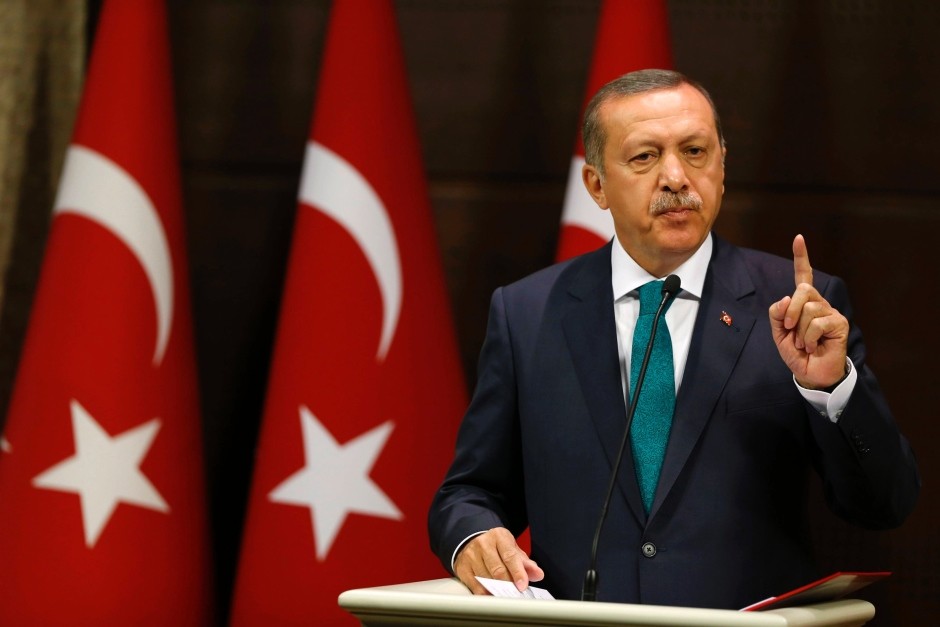Activities of President Recep Tayyip Erdogan of Turkey, has portray him in bad light and a threat to all pro-democracy advocate in that country. His autocratic tendencies supported by the Justice Development Party (AKP)’ system of governance as made Turkey one of the most dangerous place to be for any pro-democracy advocate.
Report has it that since December 2013, the government has taken unprecedented steps to exert executive control over Turkey’s judiciary, to interfere with and derail the corruption investigation level against some top government functionaries and loyalists of the ruling AKP.
This draconian move was intended to stifle criticism in the media, both mainstream and social media. Erdogan has not hidden his hatred for loyalist of the Hizmet movement. His aim is to purge supporters of the Hizmet movement from public life and to obstruct their humanitarian and educational institutions and business and professional associations.
The mechanisms used to oppress Hizmet-affiliated journalists and media companies existed before the AKP came to power, but the AKP government has used them with increasing frequency and force.
It did not end here, the government went further to bring the main institution responsible for the judiciary, the High Council of Judges and Prosecutors, under its control by purging its members of anyone suspected of opposing the Justice Development Party (AKP) government, including those believed to be supporters of the Hizmet movement and replacing them with loyal supporters.
Also the government has increasingly used repressive measures, including restrictions on freedom of the press and interference with social media, to stifle free reporting and public debate.
The measures used by the government against journalists associated with the Hizmet movement and other journalists critical of the government are; criminal prosecution of journalists for defamation, insulting the government of the Turkish Republic and under the Anti-Terror Law (TMK) and organised crime provisions in the Turkish Criminal Code (TCK) and many others.
The concerted actions since December 2013 against journalists associated with the Hizmet movement are unfortunately just one example of the AKP’s determination to intimidate and suppress a free press and full public debate of political issues in Turkey.
In recent years, the deteriorating situation regarded freedom of expression has raised serious concerns in Turkey and internationally, which lead to protest by some group of Japanese journalists.
A group of Japanese journalists who came together with their Turkish colleagues at the Turkey-Japan Media Forum last week in Tokyo expressed shock at the pressure placed on independent media outlets by the Turkish government.
They were against the violation of media freedoms in Turkey, and expressed sadness. Ordinarily, there is supposed to be freedom of press, in Turkey, the case is not the same.
It was revealed that after their forum, the Turkish journalists met with Japanese Foreign Minister Yasuhide Nakayama over the matter.
The report has it that the three-day event was discussions on the pressure placed on journalists who publish news reports that are critical of President Recep Tayyip Erdogan and the interim Justice and Development Party (AK Party) government.
The Japanese journalists all expressed their disapproval of the pressure journalists in Turkey face. However, some of the Japanese journalists said they were shocked that many journalists in Turkey have faced investigations, prison sentences and attacks from their government.
They regretted that they are not subject to such pressure despite their strong criticism of the Japanese government. The Japanese journalists added that they supported their Turkish colleagues in their struggle against oppression.
Following President Erdogan’s inauguration, a new government was appointed on 29 August 2014, led by Prime Minister Ahmet Davutoglu who also succeeded Mr. Erdogan as leader of the AKP.
As a way of imprisoning the people of Turkey and subjecting them under his autocratic rule, he introduced an awful major to criminalize and defame the Gulen movement, popularly known as Hizmet movement.
The term is called parallel state or parallel structure, which was is inspired by Turkish Islamic scholar Fethullah Gulen.
Erdogan accused the movement of being behind the revelations of corruption that have implicated Erdogan’s family and of plotting to stage a coup against him and the AK Party government, which was alleged to be false.
But the right to liberty consistently emphasised that it is one of the fundamental principles of a democratic society that the state must strictly adhere to the rule of law when interfering with the right to personal liberty.
On the right to a fair trial, the decision to arrest and the dismissal of appeals for release were made by Criminal Judges of the Peace, established by Law No. 6545 on 18 June 2014.
According to the Constitution, the establishment of the courts, their jurisdiction, function and procedures must be defined by law. It further states that “no one can be brought before an agency other than the court to which he or she is legally submitted’. This is called for serious thinking.

